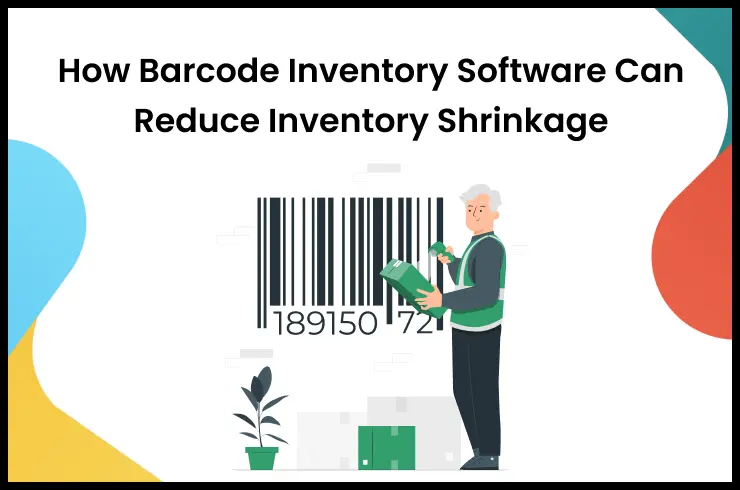Understanding inventory write-offs is crucial for businesses to maintain accurate inventory records, assess profitability, and make informed decisions about inventory management. The process of inventory write-offs refers to removing or reducing the value of items deemed unsellable or obsolete, resulting in a decrease in the inventory's recorded value on a company's financial statements. Inventory write-offs are recorded as an expense in the company's financial records, which reduces the company's reported profits and taxable income.
Inventory write-offs have significant importance for a company, as they directly impact the company's profitability, cash flow, and financial ratios. In addition, managing inventory write-offs is vital for businesses for several reasons. Accurate inventory records are crucial for financial reporting; they also help companies to identify and address any operational issues that may be causing losses.
Lastly, it also helps maintain customer satisfaction by ensuring that only quality and sellable products are available, reducing the risk of selling damaged, expired, or obsolete items to customers. Let's dive deeper to learn more about inventory write-offs.
Reasons for Inventory Write-Offs
There are several internal and external reasons why inventory write-offs. Below are some of those reasons:
Obsolete inventory:
When a company holds obsolete inventory, it becomes a liability and can negatively impact the business's financial health and operational efficiency. As a result, many companies write off obsolete inventory from their books, which means removing the inventory's value from the financial statements. There are many reasons why obsolete inventory can lead to inventory write-offs, for example, loss of market demand, expiry of goods, change in product design, and overstocking.
Damaged or expired inventory:
Damaged or expired inventory is a common reason for business inventory write-offs. When goods become damaged or expired, they are no longer suitable for sale or use, and as a result, they can lose their value and need to be written off from the company's books. Reasons for damaged inventory include inability to sell or use the product, loss of value, and operational efficiency.
Theft or loss of inventory:
Theft of inventory can be a reason for business inventory write-offs. If a business experiences theft or loss of inventory, it is essential to report the incident to the appropriate authorities and insurance provider promptly. In contrast, loss refers to the unintentional disappearance or destruction of stock due to theft, damage, or other unforeseen events.
Errors in inventory tracking:
Errors in inventory tracking can be a significant reason for business inventory write-offs. Inventory tracking refers to monitoring and recording the movement of inventory items, including their receipt, storage, transfer, and sale. Errors in inventory tracking can occur at various stages of the inventory management process, such as data entry, recording, reconciliation, or physical counting. These errors can result in discrepancies between the recorded inventory levels and the actual physical inventory.
How to Prevent Inventory Write-Offs
By incorporating these practices, you can easily prevent inventory write-offs and manage your inventory and production process:
Proper inventory management:
Proper inventory management is essential to prevent business inventory write-offs. Effective inventory management involves efficiently tracking, controlling, and optimizing inventory levels to ensure they are aligned with the actual physical inventory. Proper inventory management can help in robust inventory control, supplier management, and timely order fulfillment.
Regular inventory audits:
Regular and accurate inventory audits are an essential part of effective inventory management. Regular audits help identify discrepancies, detect errors, use proper stock rotation techniques such as (FIFO or LIFO), prevent shrinkage and theft, help comply with inventory management regulations, and improve record-keeping and documentation processes.
Accurate tracking of inventory movement:
Accurate tracking of inventory movement allows businesses to quickly identify and rectify any discrepancies or issues during inventory movement, provides real-time visibility of inventory levels, helps minimize inventory movement confusion, ensures compliance with inventory policies and procedures, improves forecasting and demand planning, and enhances operational efficiency.
Effective forecasting and planning: Effective forecasting and planning help businesses optimize their inventory levels. Accurate forecasting and planning enable companies to understand demand patterns better, identify trends, and make informed inventory replenishment, reordering, and redistribution decisions. By aligning inventory levels with expected demand, businesses can prevent stockouts, overstocks, and obsolescence, which are common causes of inventory write-offs.
Managing Inventory Write-Offs
Managing and reducing inventory write-offs is crucial to properly running business operations and looking after cash-flow management. Therefore, here are a few steps to take when inventory write-offs occur:
Assessing the value of the write-off:
The statement 'Assessing the value of the write-off' refers to evaluating the worth or significance of a write-off. Assessing the value of a write-off involves determining the amount by which the asset or liability should be reduced or eliminated from the financial statements. It is essential for financial reporting, cost management, and decision-making as it can impact a company's financial statements, including its balance sheet, income statement, and cash flow statement.
Accounting treatment of inventory write-offs:
Accurate financial reporting helps provide reliable information to stakeholders, while profitability and cost management involve properly accounting for losses and identifying cost inefficiencies. Cash flow management is optimized by timely identifying and addressing obsolete or damaged inventory, and compliance with accounting standards and regulations helps maintain transparency and avoid legal and financial risks. Proper accounting treatment of inventory write-offs is crucial for effectively managing inventory losses and efficient inventory management practices.
Implications of inventory write-offs on financial statements:
The implications of inventory write-offs on financial statements provide valuable information for managing inventory write-offs effectively. The impact of inventory write-offs on financial statements refers to the effects of writing off inventory on a company's financial reporting. Accurate financial reporting, performance analysis, compliance, transparency, and monitoring and control are some of the ways inventory write-offs in financial statements can aid in managing inventory losses and improving overall inventory management practices.
Examples of Inventory Write-offs
Below are the case studies or examples of two different companies that have two different lines of business to explain to you why and how they addressed inventory write-offs:
Company A:
A clothing retailer ordered a large number of winter jackets anticipating high demand during the holiday season. However, the jackets did not sell well due to unexpectedly warm weather and changes in consumer preferences, resulting in excess inventory. As a result, the company had to mark down the prices of the jackets to clear the stock, but even then, some jackets remained unsold. To address the situation, the company had to write off a portion of the unsold jackets as inventory losses in its financial statements, which impacted its net income and inventory valuation.
Company B:
An electronics manufacturer sourced a batch of microchips from a supplier to use in its products. However, during the production process, it was discovered that a significant portion of the microchips was defective and could not be used. The company had to discard the faulty microchips, resulting in a write-off of the cost of the unusable inventory. This write-off affected the company's inventory valuation, cost of goods sold, and gross margin in its financial statements.
In both cases, the companies faced inventory write-offs due to changes in demand, quality issues, or obsolescence. These write-offs impacted the companies' financial statements, including the income statement, balance sheet, and possibly the cash flow statement. They required appropriate accounting treatment to reflect the inventory losses accurately.
In conclusion, these case studies highlight the importance of effective inventory management, quality control, monitoring demand, accurate financial reporting, and continuous improvement to prevent or minimize inventory write-offs and optimize overall inventory management practices in a business.
Learn Key Strategies to Manage Inventory Write-Offs With TranZact
Understanding and effectively managing inventory write-offs are crucial for businesses to maintain financial health and optimize inventory management practices. Effective inventory management practices, including regular inventory audits, effective quality control measures, and accurate demand forecasting, can help minimize the need for inventory write-offs and optimize a company's inventory management processes.
TranZact's inventory management solution ensures this by enabling your business to be proactive and vigilant in monitoring demand, managing inventory levels, and learning from past experiences. This supports your businesses in minimizing the financial impact of inventory write-offs and ensuring efficient and profitable inventory management practices!
FAQs Inventory Write-offs
1. What are inventory write-offs?
Inventory write-offs refer to removing or reducing the value of inventory deemed unsellable, obsolete, or damaged from a company's books.
2. Why do companies write off inventory?
Companies write off inventory for various reasons, such as changes in demand, product obsolescence, quality issues, damage, or spoilage. Writing off inventory allows companies to reflect the actual stock value on their financial statements accurately, adjust their cost of goods sold (COGS), and maintain accurate inventory records for financial reporting and tax purposes.
3. How do inventory write-offs impact a company's financial statements?
Inventory write-offs can impact a company's financial statements in several ways. The write-offs can affect the cost of goods sold (COGS), gross profit, net income, and inventory valuation.
4. How can companies effectively manage inventory write-offs?
Companies can effectively manage inventory write-offs by implementing proper inventory management practices, such as accurate demand forecasting, regular inventory monitoring, quality control measures, and timely adjustments to production, purchasing, and pricing decisions.















